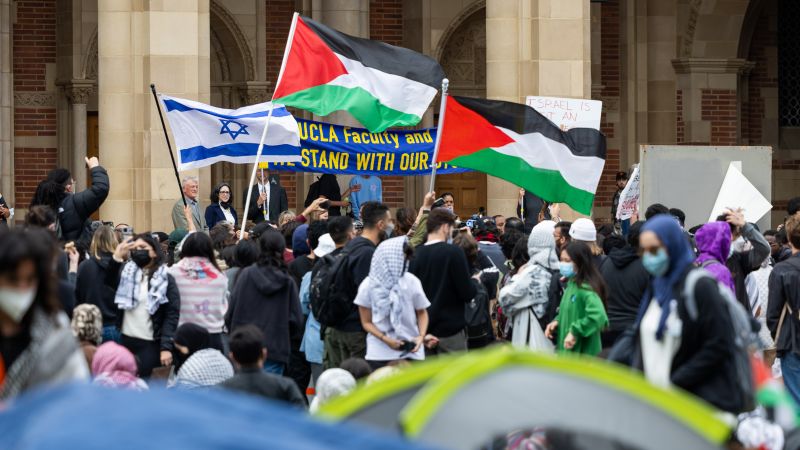The Israeli-Palestinian conflict is a complex issue with deep historical roots that remain difficult to capture succinctly. Students on college campuses across the United States have been participating in protests in response to the reports and videos coming out of Gaza, which many find unbearable. These students come from diverse backgrounds and hold a spectrum of political and social views, with many expressing a belief that the actions of the Israeli military in Gaza represent a continuation of a long history of oppression of Palestinian rights, land, and culture. Protesters are calling on their schools to take a stand against what they perceive as genocide in Gaza.
Concerns about antisemitism have also arisen on campuses, with reports of threats and violence against Jewish students. Some Jewish students have reported feeling threatened by protesters and encountering antisemitic rhetoric at rallies. The White House and multiple governors have voiced support for Jewish students and called for restraint from protesters and universities. As incidents of antisemitism have surged since a recent attack by Hamas, some Jews believe that Israel needs more support than ever as a refuge for the Jewish community, even if they disagree with the policies of Prime Minister Benjamin Netanyahu and the country’s actions in Gaza.
Reports on the ground show that protesters on campus are engaged in a variety of activities, including poetry readings, painting, and completing school assignments. There have also been instances of multi-faith prayers and group dancing. However, hundreds of protesters have been arrested for trespassing and violating school rules, such as blocking access to campus buildings. Some Jewish students have expressed feeling unsafe due to the protests and social media posts, even as most university administrators have refrained from taking action against nonviolent protesters exercising their right to free expression. Critics have questioned the universities’ responses to the protests, including the arrests.
The nuance of the Israeli-Palestinian conflict has led to a diversity of perspectives and experiences among college students participating in protests. The issue has also brought to light concerns about antisemitism on campus, with Jewish students reporting threats and encountering antisemitic rhetoric at rallies. As incidents of antisemitism have increased, some Jews feel that Israel needs more support as a refuge for the Jewish community, despite disagreements with the government’s actions. Reports from campus protests show a range of activities, with some protesters engaging in nonviolent expressions of free speech, while others have been arrested for rule violations.
The demonstrations on college campuses have sparked a national conversation about the Israeli-Palestinian conflict and issues of antisemitism. Protesters are calling for their schools to take a stand against what they perceive as genocide in Gaza, while Jewish students have expressed concerns about feeling unsafe due to antisemitic rhetoric at rallies. University administrators have largely refrained from taking action against nonviolent protesters, despite some students feeling threatened. As the conflict continues to escalate, the protests on campuses represent a microcosm of the broader tensions and complex dynamics at play in the Israeli-Palestinian conflict.


